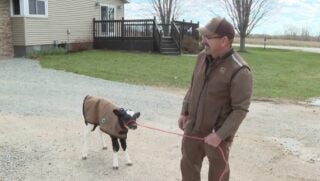Grandmaster: “What have you brought today? Tell me.”
Valkyrie: “A contender.”
— Thor: Ragnarok
At the end of Ragnarok, Thor and his spot-cobbled Revengers team usher in the end of the mythical Asgard. Plot-wise, it made perfect sense, and advanced the shared narrative of the Marvel Cinematic Universe.
But back here on Midgard (aka Earth), the headlines say an ecological Ragnarok is underway, a uniquely six legged variety. Insects are on the ecological brink. Perhaps in our great-grandchildren’s lifetime, they’re slated to go extinct!
Gifted with fantastical abilities worthy of inclusion in the comics, are insects taking a page out of the dodo’s playbook? Not because they’re Darwinian pushovers, but because humans are just too overbearing.
In Florida, I remember blindly walking into what felt like a small sinkhole. As the earth collapsed underfoot, a burning sensation radiated up my legs. Fire ants. Panicked, I feverishly brushed them off and darted to my car. My chest tightened and my breathing became labored. The beginnings of anaphylactic shock. One errant step cost me dearly. I was stung over 70 times. Just had to count the welts. I was Godzilla trampling Tokyo, an aggressor in their domain. The creepy crawly variety.
Despite this disastrous flirtation, I have to confess a sentimental soft spot for insects. My first year of grad school was almost exclusively dedicated to their collection, ID, and curation. I’ve built my career (in part) around insect advocacy on Capitol Hill and in the trenches with the public — with Master Gardeners and at bug camps. I also proudly serve our country as an Army Reserve entomologist.
So yeah, I’m an avowed bug fanatic. If there was an eco-edition of Dungeons & Dragons, I’d play the insect cards. Their diversity is staggering, underscoring many ecological talents. They’re the utilityman class in an MMORPG (massively multiplayer online role-playing game).
Many are cryptic and beneficial behind the scenes. But comfortable obscurity quickly gives way to flashy notoriety when describing their effect on human societies. Their mischievous and downright destructive nature — biblical plagues and debilitating diseases come to mind — usually steal the limelight.
Despite this, they’re oddly appealing. The little hellions ooze personality once you get to know them. So naturally, revelations of extinction would be distressing, if true. After reading the blistering headlines confidently predicting oblivion, I had to activate my skepticism lobe. For a world destined to be ruled by cockroaches (the old joke of course), it’s hard to believe the insect “eco-bloc” would just willfully go meh into that good night.
We know messaging depends on context. But when “just the facts” regresses to a tabloid-styled spin, selective omission, and melodrama — that reeks of yellow journalism.
As such, I present the Seven Deadly Sins of science reporting:
Pride: The Dunning-Kruger Effect “know it all.” The delusion of expertise on topic X. The audacity to be an armchair expert.
Greed: Monopolizing and capitalizing on misinformation. Compound interest goes a long way on the interwebs.
Lust: An inordinate craving for shaky, bias confirming evidence.
Envy: In the age of clickbait, headlines increasingly devolve to a battle of media “Joneses” to see who can outscoop who for bragging rights. The most sensationalized and escalation-prone reporting wins.
Gluttony: Over-satiating with informational quantity rather than quality. The most loaded headline with all the trimmings forms debilitating plaques in the bloodstream of understanding.
Anger: Needlessly stoking public ire to sell manufactured controversy.
Sloth: The abdication of journalistic responsibility. Selective omission of details that might resolve an altogether different picture.
These are the sins of the media outlets reporting on the study. But what about the originating study itself?
It was presented as the definitive snapshot — a global harbinger — of insect declines. In practice, the study compiled a very limited sliver of data. So limited that it’s effectively unverifiable when scaled to a larger global pie.
Though the aim was to develop a holistic snapshot of species richness (number of species) and abundance (number per species) over the past 40 years, it was fundamentally flawed.
Why? In unequivocal terms, it was a simple keyword search of a single database. And it ignored any studies showing population stability, only focusing on changes (up or down). Also, consider that most studies on insect populations are from Europe. Hardly a sufficient pool of data to derive such a grim global prognosis.
Much remains unknown about the status of insects worldwide. I’ve heard it described as we don’t know what we don’t know. To say otherwise is willfully arrogant. It’s totally fair to question what’s driving these population oscillations — what we do know. But we can’t confidently say that all species will react equally to “contenders” like habitat loss, pollution, and invasive species, etc.
That’s not to say that we can’t do better. But when words and phrases like “catastrophic,” “collapse,” and “hurtling towards extinction” are carelessly bandied about, that’s irresponsible. I also resent it being used as a platform for virtue signaling — that we’re in desperate need of a food system overhaul.
When I see pictures of spray rigs in calamitously titled popular press articles (without context — it could be spraying an organic pesticide after all), I can’t help but feel targeted as a farmer. I also chuckle at headlines entreating us to buy organic, because it will somehow save insects. When used properly, modern tools allow us to do more (production) with less (land), sparing habitat. What would be the state of insects (indeed all wildlife) if we didn’t?
Regrettably, the state of science reporting seems to be 1) downplay what we don’t know, 2) overplay what we do, and 3) ignore any non-conforming evidence. The causal link in a journal article may be very weak, but any smidgen of evidence — even a contradictory and/or unsubstantiated comment — is pounced on as a slam dunk. Be leery of media claims of new contenders: culprits pegged as the next (worse) thing.
Tim Durham’s family operates Deer Run Farm — a truck (vegetable) farm on Long Island, New York. As a columnist and agvocate, he counters heated rhetoric with sensible facts. Tim has a degree in plant medicine and is an Assistant Professor at Ferrum College in Virginia.



